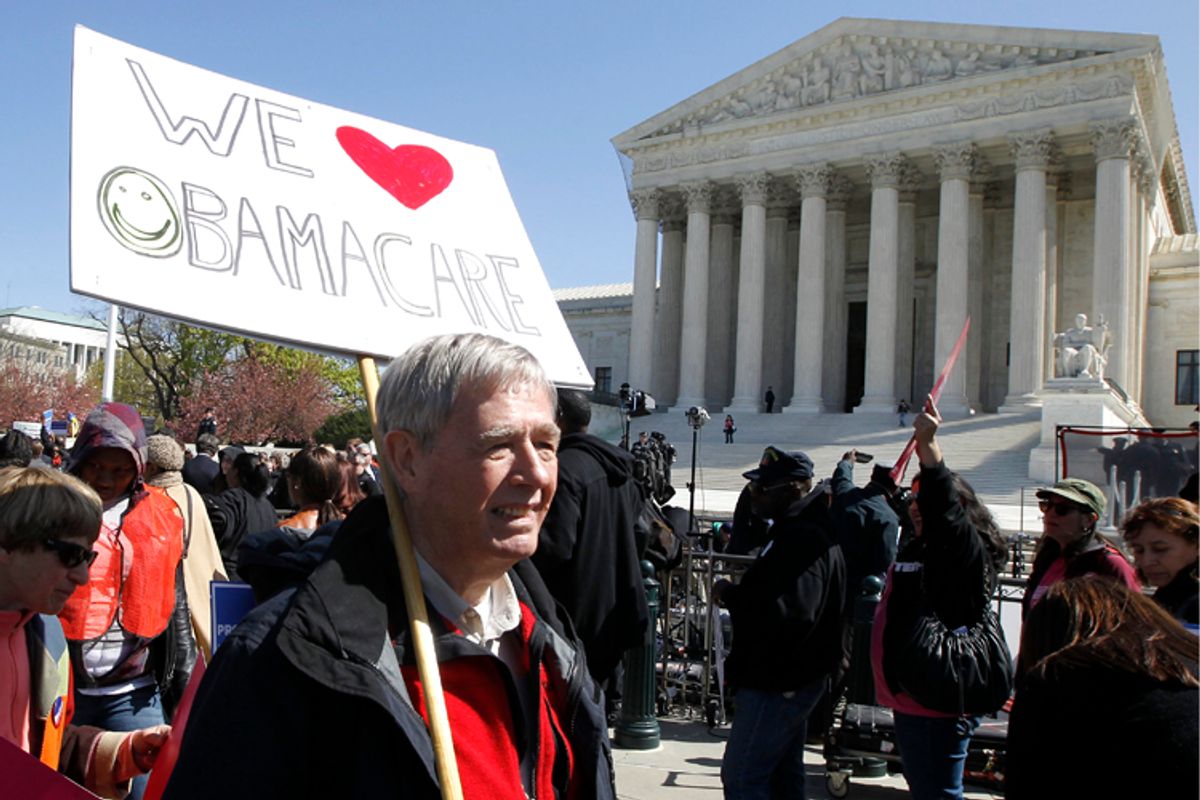While Obamacare's federal exchange website continues to struggle, there are at least three places where the landmark healthcare law is faring well: Connecticut, Kentucky and Washington. And in a new Op-Ed for the Washington Post, the Democratic governors of these three states — Dannel Malloy, Steve Beshear and Jay Inslee, respectively — explain why they've had so much more success than most. The short answer? State-level cooperation.
"The Affordable Care Act has been successful in our states because our political and community leaders grasped the importance of expanding health-care coverage and have avoided the temptation to use health-care reform as a political football," the governors write. "In our states, elected leaders have decided to put people, not politics, first."
As an example, the governors cite the acceptance of the Medicaid expansion in Kentucky and Washington, where in both cases a mostly unified state government embraced the expansion for its job- and cost-saving effects. Connecticut, meanwhile, is experiencing a very successful state-run exchange, with a customer satisfaction level of 96.5 percent. The results of these moves, according to the governors, is "people are getting better coverage at a better price."
More from Malloy, Beshear and Inslee at the Washington Post:
One such person is Brad Camp, a small-business owner in Kingston, Wash., who received a cancellation notice in September from his insurance carrier. He went to the state exchange, the Washington Healthplanfinder, and for close to the same premium his family was paying before got upfront coverage for doctor’s office visits and prescription drug , vision and dental coverage. His family was able to keep the same insurance carrier and doctors and qualified for tax credits to help cover the cost.
Since Howard Stovall opened his sign and graphics business in Lexington, Ky., in 1998, he has paid half the cost of health insurance for his eight employees. With the help of Stovall’s longtime insurance agent and Kentucky’s health exchange, Kynect, Stovall’s employees are saving 5 percent to 40 percent each on new health insurance plans with better benefits. Stovall can afford to provide additional employee benefits, including full disability coverage and part of the cost of vision and dental plans, while still saving the business 50 percent compared with the old plans.
In Connecticut, Anne Masterson was able to reduce her monthly premiums from $965 to $313 for similar coverage, including a $145 tax credit. Masterson is able to use her annual premium savings of $8,000 to pay bills or save for retirement.
These sorts of stories could be happening in every state if politicians would quit rooting for failure and directly undermining implementation of the Affordable Care Act — and, instead, put their constituents first. Health reform is working for the people of Washington, Kentucky and Connecticut because elected leaders on both sides of the aisle came together to do what is right for their residents.



Shares